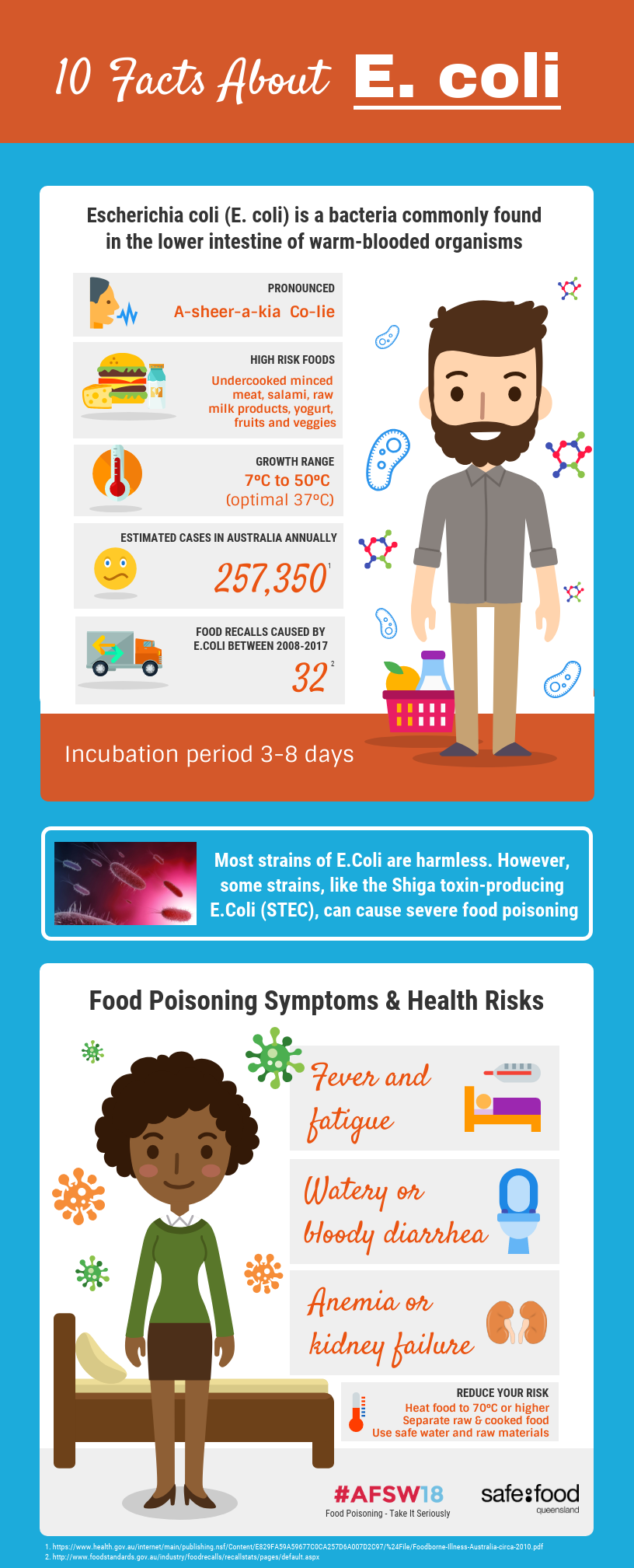Escherichia coli (E. coli) is a common bacteria found in the gastrointestinal tract of warm-blooded animals, and part of the normal bacterial flora. However, some E. coli strains are able to produce a toxin known as Shiga toxin-producing E. coli (STEC), which can produce serious infection.
An E. coli infection is often caused by consuming contaminated food or water, or through contact with animals. In particular, cattle can be healthy carriers of STEC. Their meat might become contaminated by faecal matter due to poor processing methods during slaughter, and their faeces might also end up contaminating other foods (e.g. milk, vegetables).
Foods that have been linked to E. coli outbreaks include raw (unpasteurized) milk and cheese, under-cooked beef, a variety of fresh produce (e.g. sprouts, spinach, lettuce), and unpasteurized apple cider. Earlier this year, American meat producer, Cargill, announced a recall of more than 60,000kg of minced beef in the United States after an E. coli outbreak led to 17 reported illnesses and 1 death.
Check out the following Infographic to learn more about E. coli:
Reduce Your Risk
- Wash your hands thoroughly before and after handling food
- Maintain a clean and hygienic space to prepare food (E. coli can survive on surfaces for weeks)
- Avoid cross-contamination when preparing and cooking food, especially if beef is being served (use separate cutting boards, plates and utensils)
- Use safe water and raw materials
- Wash fruit and vegetables thoroughly (ideally soaked in chlorinated water for at least 15 minutes using 1 teaspoon of household bleach in 945ml of water)
- Heat food to 70oC or more

